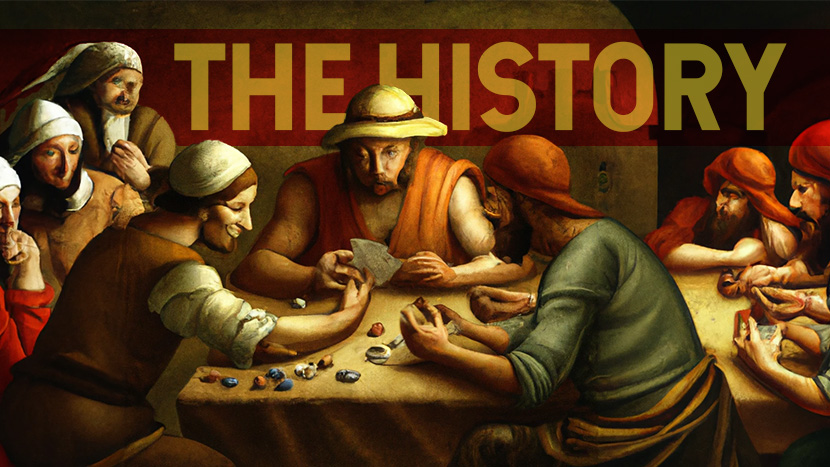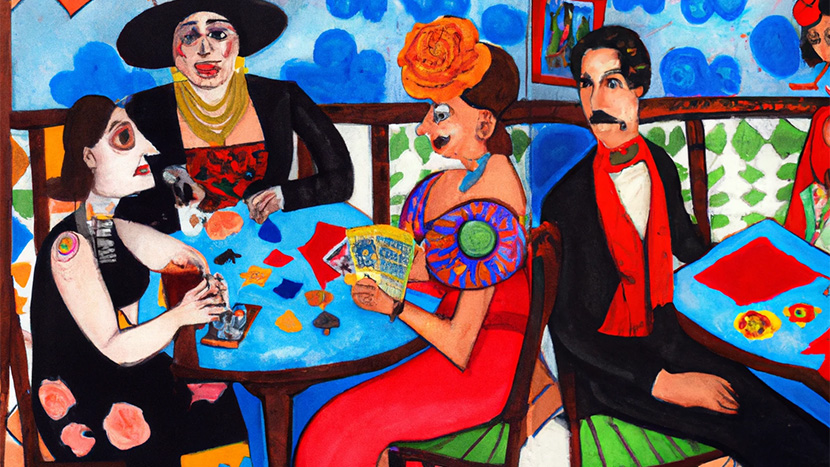The History of Gambling in Canada
It’s hard to believe that gambling has only been legal in Canada for over two decades. However, gambling has been part of Canadian culture for centuries, with the first official casino opening its doors in 1994. While there have been ups and downs throughout the history of gambling in Canada, casinos with $1 deposit remain a popular pastime for many Canadians.

This blog post will look at the history of gambling in Canada, from its early days to the present day. So, please put on your cowboy hat and boots, and let’s get started!
Early Forms of Gambling in Canada
Gambling has been a part of human civilization for millennia. In Canada, the First Nations people would gamble on games of chance, such as stick gambling and dice games. These games were often played for fun but also served as a way to resolve disputes and settle debts. European settlers brought their gambling traditions to Canada, including card games and horse racing. By the 19th century, gambling was widespread in Canada, with casual games taking place in homes and public venues such as taverns.
However, it was also associated with illegal activities such as cockfighting and smuggling. In 1892, the Canadian government passed the first laws regulating gambling, and since then, the industry has been subject to some changes and restrictions. Today, gambling is enjoyed by millions of Canadians, both offline and on the best online casino sites. While some forms of gambling are still illegal, such as unlicensed casinos and online sports betting, others are now an essential part of the Canadian economy.
The Arrival of European Settlers and the Introduction of New Games
The arrival of European settlers to Canada in the 1600s marked a significant turning point in the country’s history. Not only did the newcomers bring with them new technologies and ideas, but they also introduced several new casino games. Among the most popular of these were roulette and blackjack. Both games quickly gained a following among the settlers, who enjoyed the chance to gamble for real money.
However, the introduction of these new games was not without controversy. Many objectives for gambling were based on religious grounds, and some lawsuits were filed against casino owners for operating what was considered illegal gambling establishments. Nevertheless, the popularity of these games persisted, and they remain popular to this day.

Gambling During the Prohibition Era
Gambling was rampant in Canada during the Prohibition era. It was so common that it was considered a national pastime. Casinos were springing up all over the country, and there was no shortage of illegal bookmakers willing to bet on anything from horse races to boxing matches. The popularity of gambling was partly because it was one of the few legal forms of entertainment available during the Prohibition era.
However, it also became a way for people to make quick money. Many lost their life savings at the casinos, and crime rates increased as people turned to robbery and theft to finance their gambling habits. The government eventually cracked down on gambling, but the damage had been done by then. For many Canadians, the Prohibition era will always be associated with gambling.
Expansion of Gambling Throughout the 20th century
Gambling has been a part of Canadian society for centuries, with games of chance being played by Indigenous peoples long before the arrival of European settlers. However, it was not until the early 20th century that gambling began to be more widely accepted, with the first legal casino opening in Montreal in 1910. Since then, the industry has grown steadily, with casinos operating in all provinces and territories.
The expansion of gambling has had several economic and social impacts, both positive and negative. On the plus side, it has created jobs and generated revenue for governments, while on the downside, it has been linked to crime and addiction. Nevertheless, gambling remains a popular pastime for many Canadians and is likely to continue to grow in popularity in the years to come.
Contemporary Gambling in Canada
Gambling has been a popular pastime in Canada for centuries. First introduced by European settlers, gambling quickly became a popular way to pass the time and make a little extra money. Today, gambling is still a popular activity among Canadians, with:
- Casinos;
- Online slots;
- Bingo halls;
- Lottery games, etc.
However, contemporary gambling in Canada is not without its critics. Some argue that gambling can lead to financial ruin and that it preys on the vulnerable. Others argue that gambling is a harmless diversion that can be enjoyed responsibly.
Whatever the case may be, there is no doubt that gambling plays a vital role in Canadian culture. First Nations people have a long history of gambling, using games to teach life lessons and pass on traditions. Today, gambling plays an essential role in the social and economic life of many First Nations communities.
It can raise funds for community projects, support local businesses, and create jobs. In addition, gambling can be a source of entertainment and recreation for Indigenous and non-Indigenous people. Whether playing bingo at the seniors centre or betting on the Grey Cup, gambling is an essential part of Canadian culture.
Conclusion
While gambling can be enjoyable for many people, it’s important to remember that it can also be addictive and harmful. The Canadian government has taken steps to address the harmful effects of gambling addiction, but more work needs to be done. If you or someone you know is struggling with a gambling addiction, please seek help.
































































































